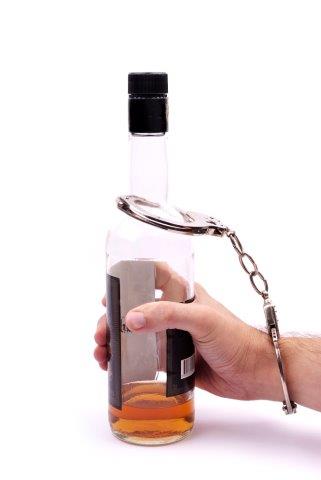FOR IMMEDIATE RELEASE | August 19, 2015
New compounds could reduce alcoholics’ impulse to drink
Note to journalists: Please report that this research will be presented at a meeting of the American Chemical Society
A press conference on this topic will be held Wednesday, Aug. 19, at 10:30 a.m. Eastern time in the Boston Convention & Exhibition Center. Reporters may check-in at Room 153B in person, or watch live on YouTube http://bit.ly/ACSLiveBoston. To ask questions online, sign in with a Google account.
BOSTON, Aug. 19, 2015 — Alcoholism inflicts a heavy physical, emotional and financial toll on individuals and society. Now new discoveries and promising animal studies are offering a glimmer of hope that a new class of drugs could treat the disease without many of the unwanted side effects caused by current therapies.
Researchers are presenting the results of their work today at the 250th National Meeting & Exposition of the American Chemical Society (ACS), the world’s largest scientific society. The meeting features more than 9,000 presentations on a wide range of science topics and is being held here through Thursday.
“Alcoholism is a major problem in the U.S.,” V. V. N. Phani Babu Tiruveedhula says. “Alcohol abuse costs almost $220 billion to the U.S. economy every year. That’s a shocking number. We need a better treatment right now.” Tiruveedhula is a graduate student at the University of Wisconsin, Milwaukee.
The exact causes of alcoholism are not well understood, but the researchers explain that the urge to drink is related to the brain’s pleasure centers. Scientists have found that alcohol triggers the brain to release dopamine, the same neurochemical whose levels increase in response to pleasurable behavior like eating, sex or listening to music.
Some drugs currently available to treat alcoholism are aimed at dopamine. “They dampen out the dopamine system a little bit, so you don’t get so happy when you have an alcoholic beverage,” says James Cook, Ph.D., a chemist at the University of Wisconsin, Milwaukee, who advises Tiruveedhula. But these medications, derived from a class of compounds called opioid antagonists, cause depression in some patients, Cook notes. And they’re addictive themselves, which can lead to drug abuse. Valium is an example of another common drug used to treat alcoholism that is also addictive.
Looking for an alternative, Cook focused on molecules known to cause some of the same results as Valium and the opioid antagonists without the unwanted side effects. For almost two decades, Cook collaborated with the late Harry June, Ph.D., a psychopharmacologist at Howard University. They conducted laboratory tests to understand the effects of these new compounds and to discover which ones work best.
Now, Tiruveedhula has made several of these promising beta-carboline compounds that could represent the future of alcoholism treatment. Tiruveedhula simplified their manufacture from eight steps to just two, while increasing the yield tenfold and eliminating unwanted byproducts. Cook says these potential medications could be taken orally.
In tests using rats bred to crave alcohol, the scientists found that administering these compounds drastically diminished the rats’ drinking. What’s more, they observed very few of the side effects common to alcoholism treatment drugs, such as depression and losing the ability to experience pleasure. The drugs appeared to reduce anxiety in “alcoholic” rats, but not in control rats. Because this is different from what is seen with current drugs, the researchers think the result hints that the new compounds work much differently than opioid antagonists. As such, the beta-carbolines may also be less addictive.
“What excites me is the compounds are orally active, and they don’t cause depression like some drugs do,” says Cook.
The group is continuing to test the compounds in additional animal studies. Cook has patented several of the most promising compounds, and he is starting to explore possible partnerships with drug makers that could lead to medications.
If everything works out, Cook says, a drug could be ready for the market in five to six years.
The researchers acknowledge funding from the National Institute on Alcohol Abuse and Alcoholism.
The American Chemical Society is a nonprofit organization chartered by the U.S. Congress. With more than 158,000 members, ACS is the world’s largest scientific society and a global leader in providing access to chemistry-related research through its multiple databases, peer-reviewed journals and scientific conferences. Its main offices are in Washington, D.C., and Columbus, Ohio.
Media Contact
ACS Newsroom
newsroom@acs.org






